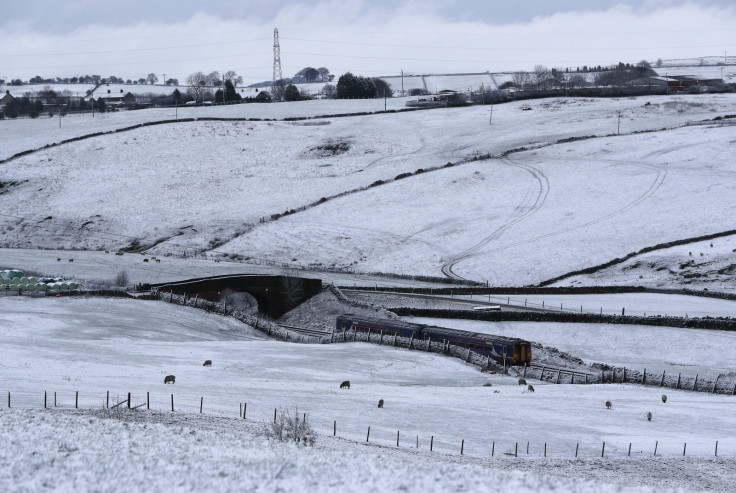UK weather: Snow on way as sub-zero temperatures hit England, Scotland and Wales
The Met Office predicts that snow will make its way inland from the East on Thursday.

Temperatures have plunged across the UK as the February deep-freeze bites in. The Met Office have warned that snow is on the way.
As much as 2cm is expected to fall in the East of England on Thursday (9 February). The snowy showers have the potential to make their way inland, with London potentially affected in the evening.
Sub-zero temperatures swept across the UK last night from Cardiff through Kendal to Pitlochry and they are expected to get worse as the week progresses. The UK is on average 5C colder than it was this time last year.
The chief forecaster said: "Temperatures will drop below freezing during Wednesday evening or night, especially inland, leading to a risk of ice on untreated surfaces.
"In addition, sleet and snow showers will be running in from the North Sea, potentially causing localised wash-off where roads have been treated.
"Locally a centimetre or two of snow may also fall over parts of high ground in the North Yorkshire Moors and Cheviots."
A severe weather warning has been issued for the East of England and parts of Scotland because of the imminent snowfall and icy conditions. The warning is yellow, meaning: "be aware".
The bitter conditions will not abate moving into Friday and the weekend. Icy roads will affect travel - drivers have been warned to take extra care when making journeys.
Scotland could see more snow than any other part of the country. As much as 6cm is predicted in the Highlands on Saturday.
Deputy chief meteorologist Dan Harris said: "Current indications are that once the east to south-easterly winds set in they will most probably last well into next week, although a gradual upturn in temperatures looks likely."
Dr Thomas Waite from Public Health England's Extreme Events team said: "Try to keep homes heated to at least 18C, stock up on any essential medicine or food that you need before the cold arrives and remember that you will be warmer wearing several thin layers instead of fewer thick ones."
© Copyright IBTimes 2025. All rights reserved.




















